'Humanitarian crisis' for ME sufferers in Wales
- Published
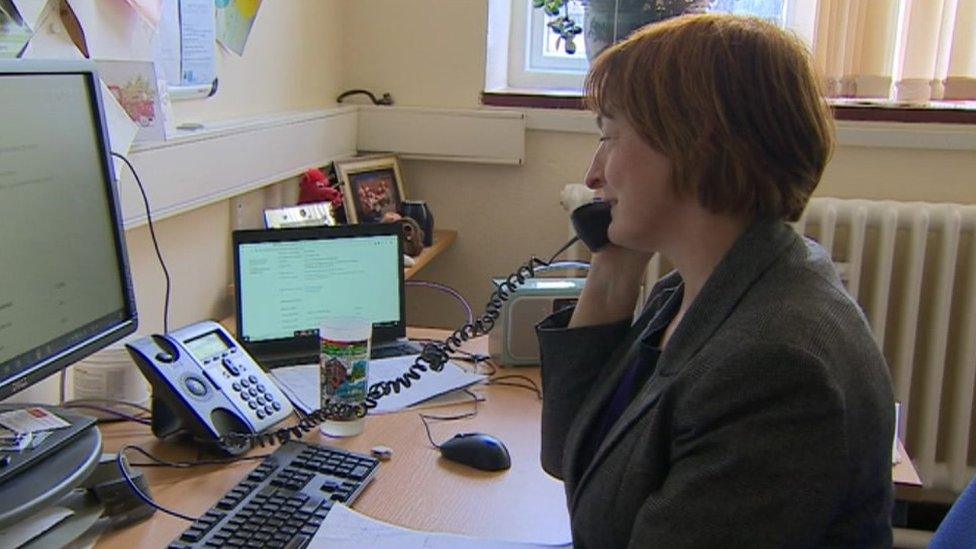
It has taken all Marian Gray's effort to continue working while battling ME
"People thought I'd moved away or joined a nunnery", said Marian Gray, who admits going "missing from life".
She disappeared because she was one of the 13,000 people in Wales battling ME.
Campaigners say there is a "humanitarian crisis" and promises of better support from the Welsh Government have failed to materialise.
On Saturday, Cardiff joined 300 places around the world in holding an event for ME awareness week, external, with empty shoes symbolising people missing from life.
"I'm a profoundly sociable person but people in Aberystwyth thought I'd moved away or joined a nunnery because they hadn't seen me in the places they should see me," said Ms Gray.
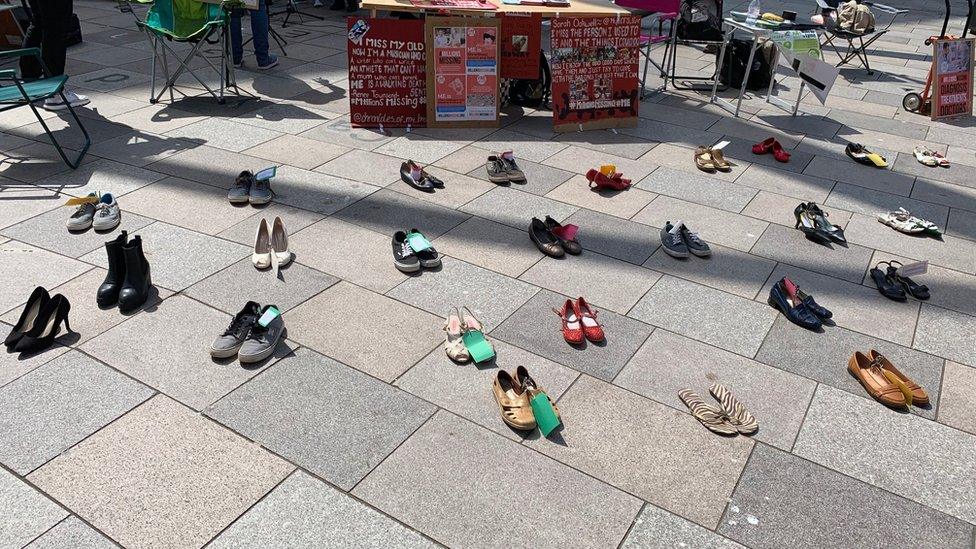
Empty shoes symbolised people missing from life during the ME event in Cardiff
"I had to leave my mountain biking shoes, my violin playing shoes.
"To continue working, I had to empty my life of anything else, including a social life."
Myalgic encephalomyelitis (ME) or Chronic Fatigue Syndrome is usually triggered by a viral infection which leads to muscle fatigue, pain and neurological symptoms such as short term memory loss.
About 13,000 people in Wales are thought to suffer from ME, and 70% of those are women.
Ms Gray, an international officer at Aberystwyth University, first had symptoms at primary school - but more than 30 years later, she says little has improved.
"The dialogue has not changed," she added.
"The doctor says 'you have this diagnosis but there is nothing we can do'."
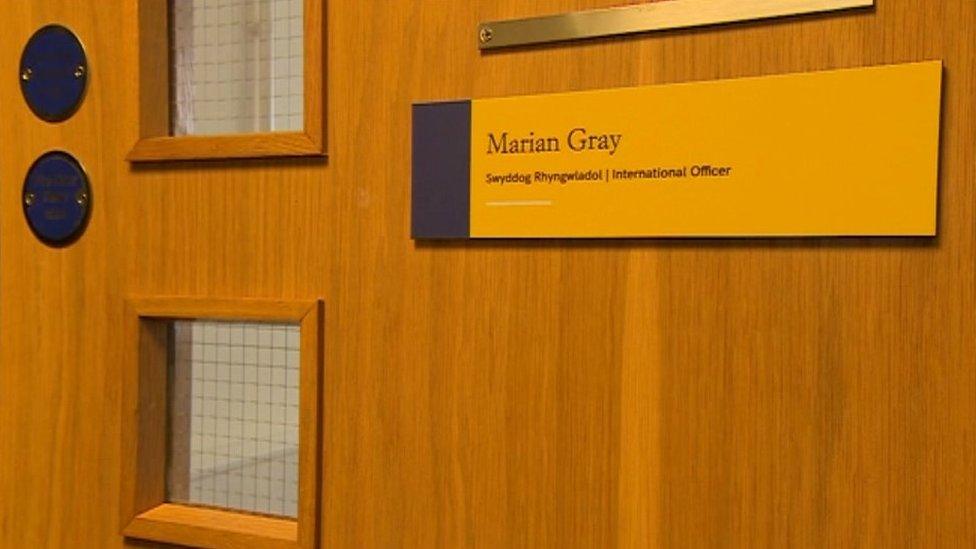
Ms Gray's employer allows her to work flexibly, sometimes from home, so she can manage her condition
By being allowed to work from home at times, she manages a career - but said some people suffering severe symptoms cannot bear bright lights or being around loved ones.
"There is a humanitarian crisis in the healthcare system," said Jan Russell, who has suffered with the condition for 30 years.
"There is 13 to 15,000 people with ME in Wales, 25% of which are severely affected.
"In Wales people are missing from the healthcare system, and when they go to the surgery, not always treated with respect."
Ms Russell, who is chairwoman of Welsh Association of ME Support, said few GPs had enough knowledge of the condition - and those left housebound felt "invisible and ignored".
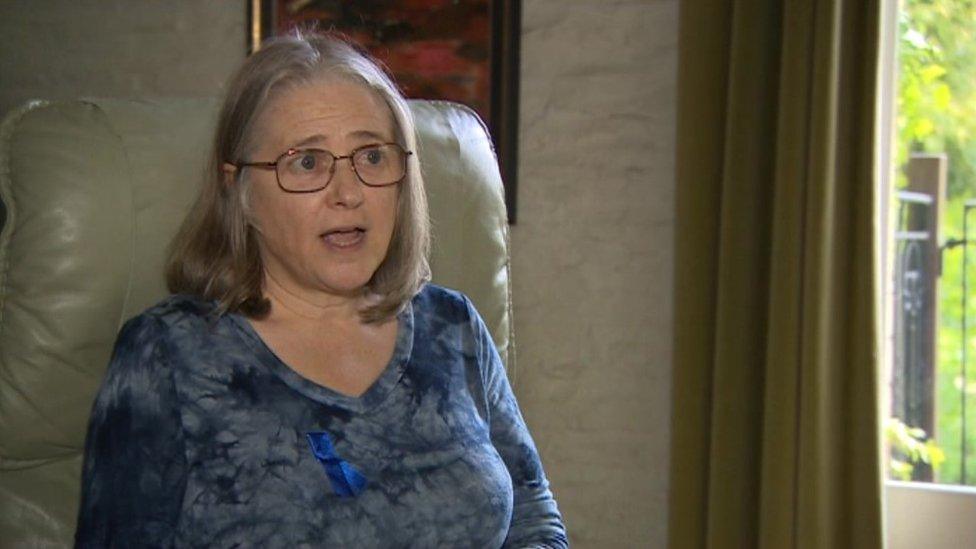
Jan Russell said her symptoms fluctuate greatly from muscle pain to "brain fog" and balance problems
"You are lucky if you can find a doctor who has an understanding of ME," said Miriam Wood, a former NHS worker who is part of Cardiff-based ME Support in Glamorgan.
"They might be thinking the person is depressed and just give them antidepressants."
Ms Wood said the First Minister Mark Drakeford had pledged to create a pathway for people to get help more easily when he was health minister between 2013 and 2016.
"We have been trying to find out what progress has been made but haven't been able to," she said.
"We are still in the same place we were all those years ago when Mark Drakeford said changes would be made."
'Invisible condition'
A Welsh Government spokesman said: "We understand the challenges faced by people living with this condition and the impact it can have on their lives and their families.
"That is why we are working with healthcare professionals and the third sector to strengthen ME services available across Wales."
Royal College of General Practitioners chairman Dr Peter Saul said ME is very difficult to diagnose and distinguish from other conditions.
"It can take longer to diagnose it than other conditions but patients should not feel that they are being ignored or dismissed," he added.
"It is a sort of invisible condition for which there are no quick medical treatments."
- Published24 October 2018
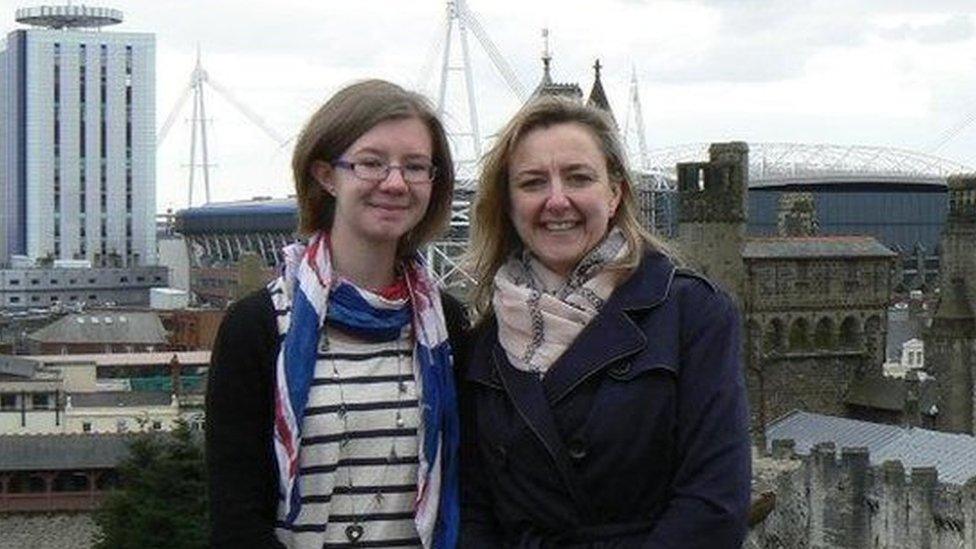
- Published17 December 2018
